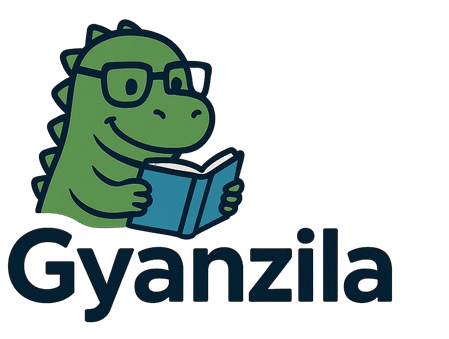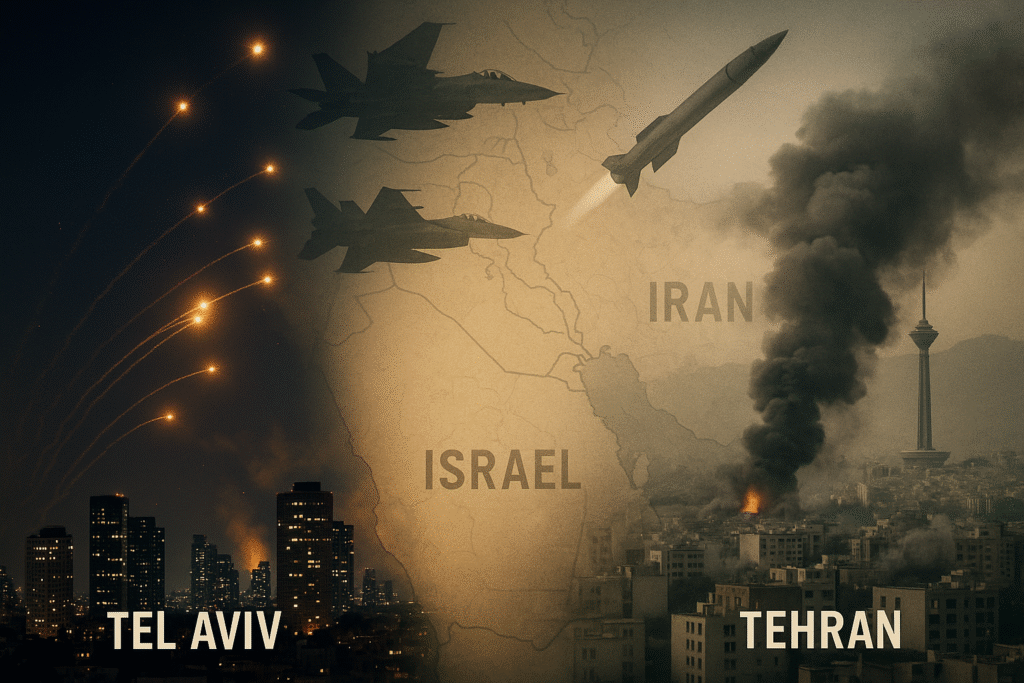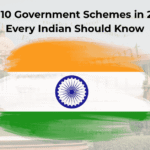Once more, eyes across the world focus in rapt attention. What started as cross-border tension between Israel and Iran is fast spiraling into military confrontation. The recent Israeli airstrikes into Iranian territory and the fierce retaliation on Iran’s part have become one of the deadliest turning points in the Iran-Israel Conflict, an age-old rivalry now escalating at an alarming pace.
Below, we unpack the events, their importance, and their possible impacts on global stability by the year 2025.
What Triggered the Current Escalation?
Tensions between Israel and Iran have always simmering away-the root causes being ideological, political, and military in nature. But the latest episode happened after a cyberattack on Israeli infrastructure allegedly carried out by Iranian-linked hackers.
In retaliation, Israeli forces commenced Operation Rising Lion, conducting a series of airstrikes far into Iranian territory, against sites for missile launches, drone facilities, and suspected nuclear infrastructure.
Iran could not stay on the sidelines. In a matter of several hours, it launched more than 150 ballistic missiles and armed drones to strike Israeli military bases, civilian targets, and also Tel Aviv. Central Israel was battered with explosions, followed by air raid sirens being heard all over the country.
What Is Operation Rising Lion?
The offensive against Iran is called Operation Rising Lion by the IDF. They include:
- Stealth F-35 jets smashed into Iranian airspace undetected
- Coordinated hacks aimed at disabling Iranian defense systems
- Drone surveillance on nuclear facilities like Fordow and Natanz
- Real-time sharing of intelligence with the U.S. and other partners
In one night, Israeli authorities were said to have prepared for the splitting of one-third of Iran’s missile launchers-for a deliberate”blow” meant to deny Iran to retaliate. With these, the Iran-Israel Conflict changes into a much more dangerous phase where the war is waged through traditional warfare as well as high-tech military means.
Iran’s Retaliation: A Show of Strength
Iran immediately and forcefully retaliated, demonstrating its sophisticated military arsenal:
- Ballistic missiles launched at Israeli cities and military installations
- Drone swarms against power plants and communications hubs
- Naval maneuvers in the Persian Gulf, threatening blockades
Iran’s Supreme Leader Ayatollah Ali Khamenei stated, “This is no longer a shadow war—this is open resistance against Zionist aggression.”
While the civilians in Tel Aviv, Haifa, and Tehran are sheltering, schools have been shut down, and flights internationally have been canceled.
Global Reactions: Panic and Diplomacy
The conflict has drawn global attention. Here’s how major powers have responded:
- United States: While backing Israel’s right to self-defense, the U.S. has urged both sides to de-escalate. Secretary of State Antony Blinken called it a “dangerous spiral.”
- Russia and China: Condemned Israel’s strikes and called for an emergency UN Security Council meeting.
- European Union: Expressed concern over the humanitarian impact and called for immediate ceasefire talks.
- United Nations: UN Secretary-General António Guterres said the region stands “on the brink of a devastating war.”
The Iran-Israel Conflict is being debated across global diplomatic circles, with many fearing it could spiral into a wider war.
What About the Nuclear Threat?
One of the greatest concerns these days in the Iran-Israel Conflict is Iran’s nuclear ambitions. Although Iran says it is not working on nuclear weapons, intelligence indicates growing uranium enrichment in secret facilities.
Israel has long declared it would not let Iran gain a nuclear bomb, and this latest attack might have been aimed at such facilities.
Experts worry that if the crisis goes on, Iran might leave the Non-Proliferation Treaty (NPT) and pursue weaponization openly—something which would rattle the world order.
What This Means for the Middle East
The Iran-Israel Conflict is not just about two nations—it’s about regional dominance. Here’s how it may affect others:
- Lebanon’s Hezbollah may open a new front from the north
- Hamas and Palestinian Islamic Jihad have already fired rockets from Gaza in solidarity with Iran
- Saudi Arabia and UAE, traditional rivals of Iran, are on high alert but calling for calm
- Iraq and Syria may turn into proxy war zones again
The entire Middle East is now walking a tightrope between diplomacy and destruction.
Oil Markets, Economy & Global Impact
Conflict in the Middle East usually means one thing: oil market panic. And this time is no different.
- Brent Crude has surged above $120 per barrel
- Stock markets across Asia and Europe have dipped
- Airline stocks and tourism sectors are under pressure
Countries like India, China, and Japan—major importers of Middle Eastern oil—are feeling the economic pinch.
Moreover, supply chain disruptions could trigger inflation spikes across the globe.
Humanitarian Crisis Unfolding
Beyond geopolitics, it’s ordinary people who are paying the price:
- Thousands of families in Tehran and Tel Aviv are fleeing cities
- Hospitals are overwhelmed with casualties from missile strikes
- International aid agencies are calling for emergency relief corridors
If the Iran-Israel Conflict spreads, we may witness a refugee crisis similar to Syria or Ukraine in past years.
What’s Next?
While backchannel diplomacy is underway, the situation remains fragile. Analysts believe there are three possible scenarios:
- Ceasefire Brokered: Through pressure from the UN or U.S., a truce is declared.
- Continued Proxy War: Direct strikes reduce, but indirect conflict persists through militias.
- All-Out War: If neither side backs down, the Middle East may plunge into its worst conflict in decades.
As of now, no ceasefire has been agreed upon.
Final Thoughts: Stay Informed, Stay Aware
The Iran-Israel Conflict in 2025 is not just a local war—it’s a crisis with global consequences. As the situation evolves rapidly, stay informed through credible sources.
Whether you care about geopolitics, humanitarian issues, or simply global peace, this is a moment in history that demands our attention.




7sypmm
jymzv1
qpwo1b